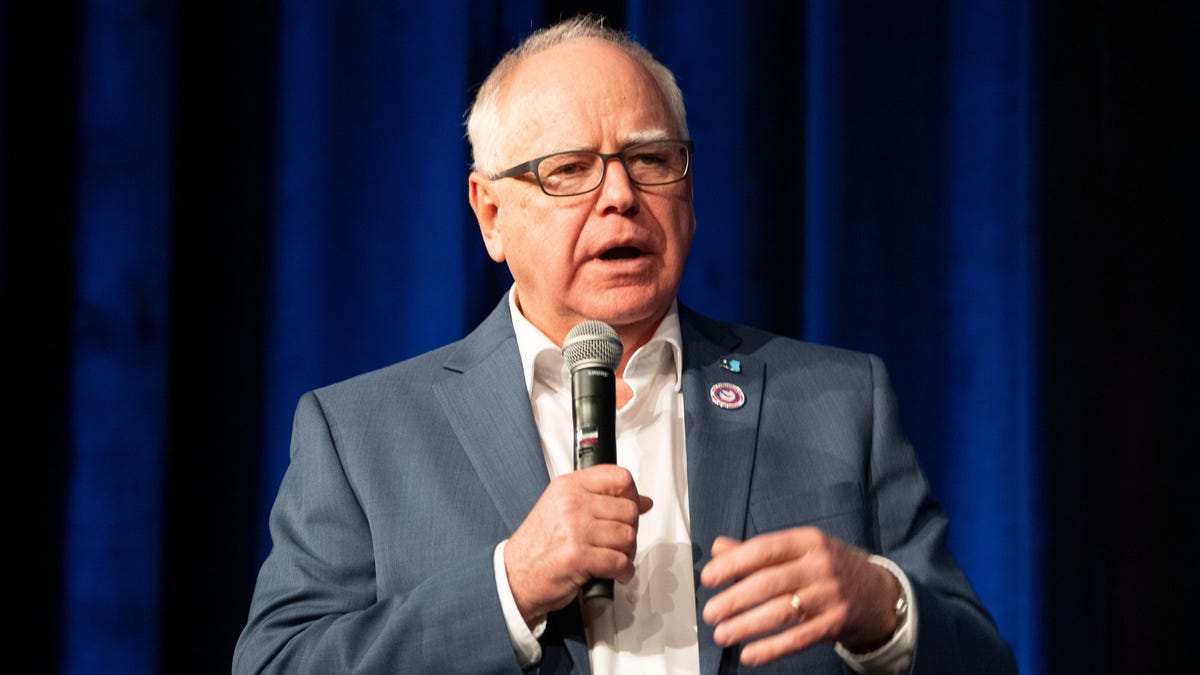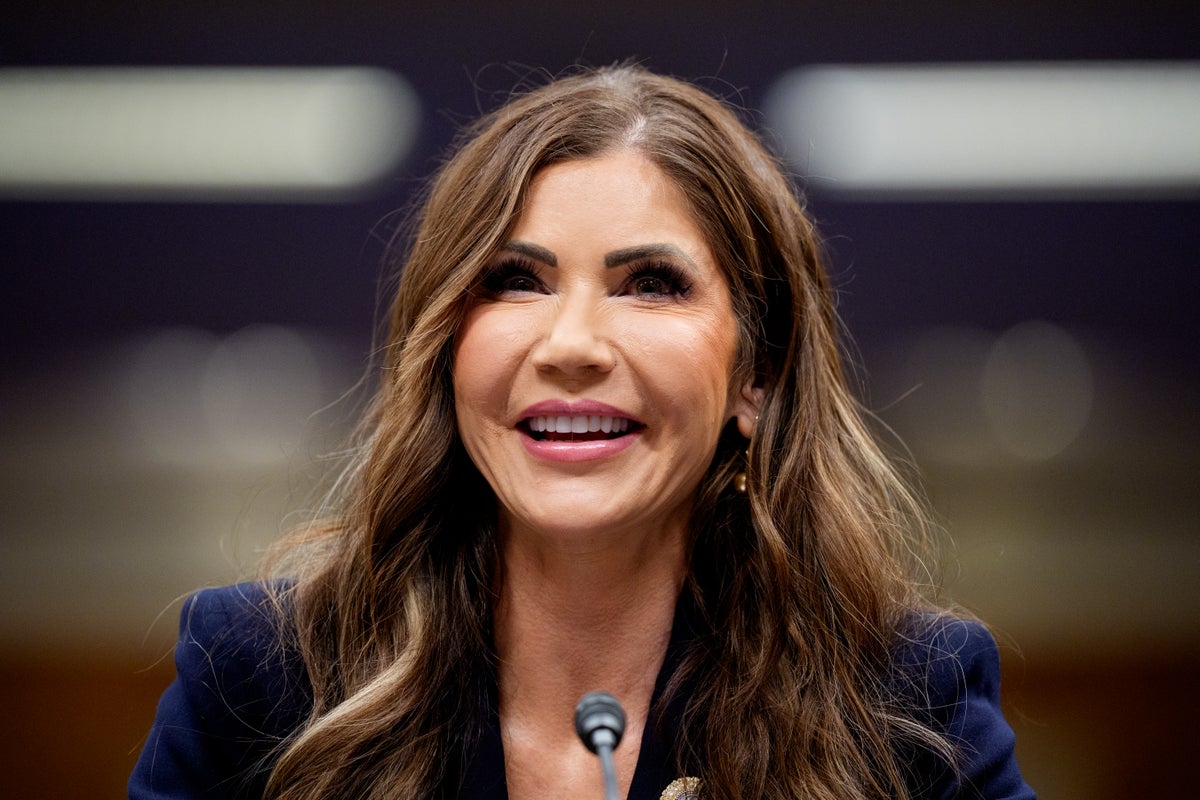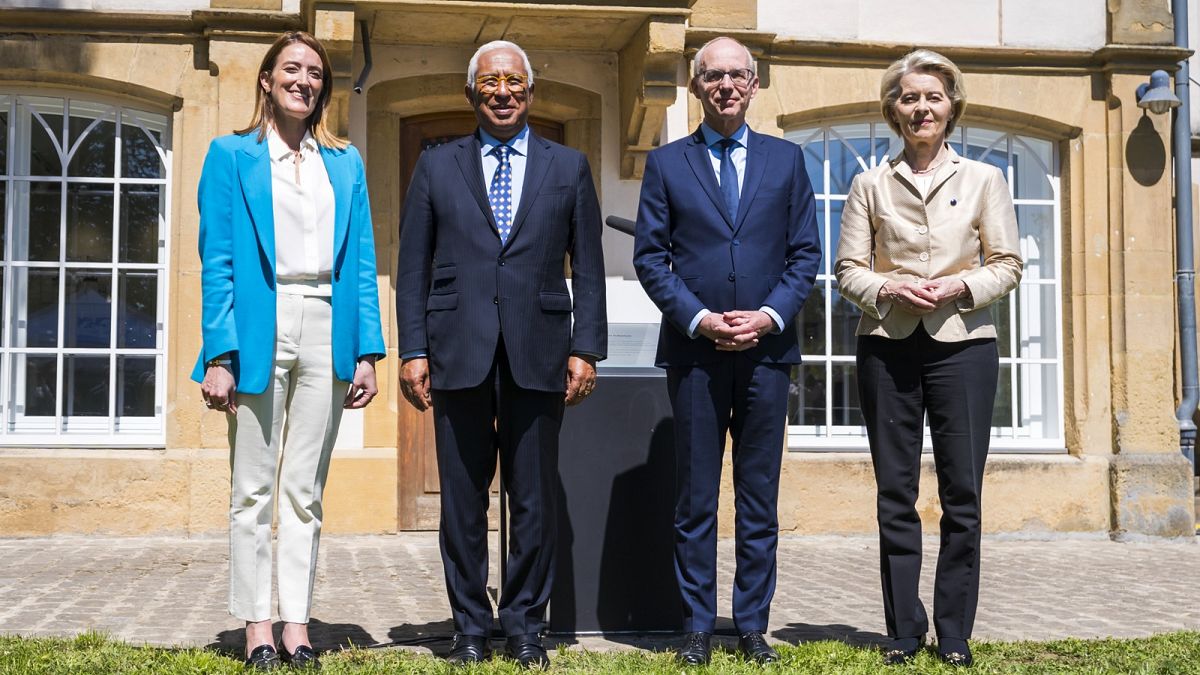Business
Could Jeff Zucker Fix CNN? He Seems to Think So.

The seminar was to be on media leadership. Dozens of students filling a classroom at Yale University in April were there to learn about the business from a man who had commanded attention in TV control rooms and corporate boardrooms for decades before a stunning exit last year.
What they got was remarkable candor about that exit.
Jeff Zucker, who had been president of CNN for nine years, told the group that he believed the network’s former owners used his relationship with Allison Gollust — who was also in attendance — as a pretext for removing him, three people familiar with his comments said.
In front of the students — where other high-profile media executives, including Bob Iger of Disney, were scheduled to speak the same day — Mr. Zucker compared his failure to disclose his relationship with Ms. Gollust, CNN’s former communications chief, to handing over a dangerous weapon.
“I gave them a gun, and they shot me with it,” Mr. Zucker said, according to the people.
That Mr. Zucker would compare his forced departure to a gunshot wound underscores the depth of his frustration with his last days at a network he controlled with exacting detail for years.
The complaint wasn’t unusual for Mr. Zucker, 58. He often compares notes on the media business with former colleagues and industry acquaintances, many of whom call him to grouse about the current state of CNN.
But his gripes have become more frequent of late, and he has made no secret of his unhappiness with the terms of his exit from CNN or his low regard for the performance of its current leader, Chris Licht. In a sense, he is now serving as a kind of grievance switchboard for current and former employees of the news network, many people who have spoken with him said.
Mr. Zucker’s criticism may be painful for executives running CNN to hear second- and thirdhand. But also painful are the numbers: The news division, which once regularly made more than $1 billion in profit annually, generated just $750 million in profit last year. And its ratings were down more than 30 percent in the first quarter of this year compared with the same point in the 2020 presidential election cycle, when Donald J. Trump — a major driver of cable news viewership — was still in the White House, according to Nielsen data.
As it has geared up to cover the 2024 campaign, the network has committed some unforced errors. Last month, CNN hosted a town hall with Mr. Trump in New Hampshire that was criticized for airing false information. Mr. Licht’s leadership and problems at the helm of the network were dissected at length in a 15,000-word Atlantic article that was published Friday.
Many anchors Mr. Zucker hired or promoted, including Jake Tapper, and Kaitlan Collins, who moderated the town hall, are still in prominent spots in CNN’s lineup. But he has found himself banished from the control room during a major news cycle, including an indictment of former President Trump and the opening acts of the 2024 presidential election.
He has not been hiding away, though. He and Ms. Gollust traveled to Las Vegas to see a Taylor Swift concert, and last month he attended the Sports Emmy Awards at the invitation of Bryant Gumbel, along with the former “Today” anchor Matt Lauer. His new office in Manhattan — where a life-size statue of the Incredible Hulk looms in the entryway — is just blocks from CNN’s former New York headquarters in Columbus Circle.
And he is trying to get his next act off the ground, starting a new venture called RedBird IMI with $1 billion to spend on acquisitions in the digital media, sports, entertainment and news industries.
This article on Mr. Zucker is based on interviews with more than four dozen of his associates in the media industry who spoke on condition of anonymity to avoid jeopardizing their relationship with him. He declined to comment, but through a spokeswoman described his attitude toward CNN.
“It is wholly unsurprising that Jeff Zucker, the architect of CNN’s unprecedented success, would have deep misgivings about the direction the network has taken since he left,” said Risa Heller, a spokeswoman for Mr. Zucker. She added that it was also no surprise “that he gets asked a lot, publicly and privately, and regularly from former colleagues, about what he thinks of CNN now.”
Months after he left CNN in February 2022, Mr. Zucker met with his successor, Mr. Licht. The organizers of that meeting — industry confederates who know both men — hoped that a lunch at Mr. Zucker’s house on Amagansett’s tony Hedges Lane would clear the air.
Mr. Zucker had been privately critical of Mr. Licht’s leadership of CNN, according to people who have spoken with him, and the two men hadn’t met since Mr. Zucker was pushed out.
The get-together didn’t kindle much bonhomie between the media executives, who had been friendly in the clubby world of TV news. Mr. Licht was seeking a rapprochement. Mr. Zucker was asked to give advice. But afterward, the former CNN president griped that Mr. Licht didn’t take any of his pointers, said a person familiar with his feelings following the meal.
“This is all very sad for Jeff,” said Kenneth Lerer, the co-founder of HuffPost and former chairman of BuzzFeed. “He should move on with his life. It’s disheartening to see.”
Mr. Lerer has a distinct perspective on the situation: He is a close friend of David Zaslav, the chief executive of CNN owner Warner Bros. Discovery, and was once also friendly with Mr. Zucker.
Mr. Zucker’s criticism has rankled executives of Warner Bros. Discovery, which owns CNN, according to people familiar with their thinking. They suspect Mr. Zucker has leaked unflattering information about the network’s operations to the press.
He has also been candid about what he sees as the missteps of CNN’s former parent company, AT&T, and its leaders, including the former WarnerMedia chief executive Jason Kilar, many industry acquaintances who have spoken with Mr. Zucker in recent months say.
Executives at Warner Bros. Discovery believe Mr. Zucker is waging a proxy war against Mr. Licht, undermining his leadership from afar, according to three people familiar with their thinking.
Mr. Zucker’s criticisms have come at a particularly inopportune time for Warner Bros. Discovery, which was created last year from the fusion of WarnerMedia, CNN’s parent company at the time, and Discovery, the home of “Dr. Pimple Popper” and “90 Day Fiancé” and is still trying to get CNN onto solid footing.
A spokesman for Warner Bros. Discovery said in a statement that the company was confident in the direction of the network and in Mr. Licht’s leadership of it. “We set a high bar for ourselves and while we know that it will take time to complete the important work that’s underway, we have great confidence in the progress that Chris and the team are making and share their conviction in the strategy,” the statement said.
Underlying the grievances are tensions between Mr. Zucker and Mr. Zaslav, who picked Mr. Licht to succeed Mr. Zucker at the top of CNN. Once great friends and business allies — and a regular pair at the East Hampton Golf Club — the two men have grown apart since Mr. Zucker’s ouster, people familiar with their relationship say.
In March, Mr. Zaslav visited CNN’s Manhattan headquarters and criticized Mr. Zucker’s leadership of the network in a meeting with Mr. Licht’s lieutenants, according to someone at Warner Bros. Discovery. In the meeting, Mr. Zaslav told CNN executives that Mr. Zucker’s gripes — which had made their way to him — were ironic, given that Mr. Zucker had once remarked that Mr. Licht was the one executive who could do the job if he ever left the network.
Since he took over CNN’s parent company, Mr. Zaslav has fired back, telling employees in a private meeting that there was a “period of time” when it became an “advocacy network,” a not-so-subtle dig at segments that were stridently critical of President Trump, who drove massive ratings. Mr. Zucker disagrees with that characterization, people who have spoken with him say, believing that on his watch the network’s policy of calling out Mr. Trump’s falsehoods led to journalistic and financial success.
In another gathering this spring, Mr. Zucker said that his departure from CNN was the hardest period in his life, adding that the episode made his bond with Ms. Gollust stronger, according to a person familiar with his remarks. He also said that the punishment he received didn’t fit the crime.
When Mr. Zucker was forced out of CNN last year, he and the network’s parent company negotiated over a statement designating his failure to disclose his relationship with Ms. Gollust as the reason for his exit. “I was required to disclose it when it began but I didn’t. I was wrong,” Mr. Zucker wrote in a memo to employees at the time.
According to two people familiar with Mr. Zucker’s departure from CNN, a company investigation into his conduct by the law firm Cravath, Swaine and Moore found multiple violations of CNN’s standards and practices, including taking part in advising former New York Gov. Andrew M. Cuomo.
Ms. Heller, Mr. Zucker’s spokeswoman, said Mr. Zucker did not advise Mr. Cuomo.
“As we have said numerous times, Mr. Zucker never advised Andrew Cuomo, directly or indirectly,” she said. “He was asked to resign for one reason only, failure to disclose his relationship.”
For Mr. Zucker, who has been in senior management ranks since his 20s, when he became executive producer of “Today,” his abrupt exit from CNN represented a marked change of pace. He soon began to explore his options, gravitating to the familiar territories of sports and media. Years ago, Mr. Zucker told a writer for the Harvard Crimson, the campus newspaper he worked on as an undergraduate, that he hadn’t taken a day off since finishing college.
Shortly after his ouster from CNN, Mr. Zucker began plotting his next move, meeting with advisers, former colleagues and industry stalwarts at upscale watering holes like the Core Club in New York and the Four Seasons in Los Angeles. But even as he planned for the future, Mr. Zucker was thinking about his past.
In the summer, he traveled to Jackson Hole, in Wyoming, for an off-the-record gathering of media executives. In a fireside chat at the event, he was asked for his view on the current direction of CNN and in his answer criticized Mr. Kilar for the way the executive handled his exit, according to two people familiar with his remarks.
In his new endeavor, the investment vehicle Redbird IMI, he has told confidants he is interested in building a company that owns digital publications targeted at specific audiences, similar to Condé Nast, publisher of Vogue and The New Yorker. He has held talks with owners of digital-media start-ups, but those conversations haven’t yet resulted in a deal. He is now one of at least three suitors exploring a deal to take a majority stake in Air Mail, the media company founded by the former Vanity Fair editor Graydon Carter.
In recent months, he has also met with Jeff Bezos, the Amazon founder and owner of The Washington Post, according to three people familiar with their conversation.
One company Mr. Zucker is not in talks to acquire is CNN, according to people familiar with his plans. Though he has told some associates he would be interested in acquiring the network should it come up for sale one day, he has lamented to others that CNN’s current owners, Warner Bros. Discovery, have damaged the network so much through cost-cutting that he wouldn’t be interested in owning it.
But Mr. Zucker has explored a deal for the network before. In late 2020, he and Andrew Morse, CNN’s former digital chief, met with Emerson Collective, the umbrella company founded by Laurene Powell Jobs, and had preliminary conversations about a potential spinout of the network. Without informing Mr. Kilar, his boss at the time, Mr. Zucker referred Emerson Collective’s interest to an executive at AT&T. The deal never happened, and AT&T ultimately turned to Discovery.
There are signs that Mr. Zucker believes he could once again be calling the shots at a media organization. He has told associates that he’s open to an operational role at one of the companies he buys, and many of his confidantes believe he could still land another big corporate job.
A professional revival for Mr. Zucker has some precedent. After he was fired as chief executive of NBCUniversal in 2010, Mr. Zucker created a new daytime show for Disney with the former “Today” host Katie Couric that he called a “tremendous opportunity.”
Then he got the CNN job. “Katie” was off the air two years later.

Business
Avelo Airlines Faces Backlash for Aiding Trump’s Deportation Campaign

In the four years since its first flight, Avelo Airlines has gained loyal customers by serving smaller cities like New Haven, Conn., and Burbank, Calif.
Now, it has a new, very different line of business. It is running deportation flights for the Trump administration.
Despite weeks of protests from customers and elected officials, Avelo’s first flight for Immigrations and Customs Enforcement appears to have departed on Monday morning from Mesa, Ariz., according to data from the flight-tracking services FlightAware and Flightradar24.
According to FlightAware, the plane is expected to arrive in the early afternoon at Alexandria International Airport in Louisiana, one of five locations where ICE conducts regular flights. Avelo declined to comment on the flight and ICE did not respond to multiple requests for comment.
The airline’s decision to support President Trump’s effort to accelerate deportations of immigrants is unusual and risky. ICE outsources many flights, but they are usually operated by little-known charter airlines. Commercial carriers typically avoid this kind of work so as not to wade into politics and upset customers or employees.
The risks for Avelo are perhaps even greater because a large proportion of its flights either land or take off from cities where most people are progressives or centrists who are much less likely to support Mr. Trump’s hard-line immigration policies. More than 90 percent of the airline’s flights arrived or departed from coastal states last year, according to Cirium, an aviation data firm. Nearly one in four flew to or from New Haven.
“This is really fraught, really risky,” said Alison Taylor, a professor at the New York University Stern School of Business who focuses on corporate ethics and responsibility. “The headlines and the general human aspect of this is not playing very well.”
But Avelo, which is backed by private investors and run by executives who came from larger airlines, is struggling financially.
The money the company stands to make from ICE flights is too good to pass up, the airline’s founder and chief executive, Andrew Levy, said last month in an internal email, a copy of which was reviewed by The New York Times. The flights, he said, would help to stabilize Avelo’s finances as the airline faced more competition, particularly in and near New Haven, which is home to Yale and where the airline operates more than a dozen flights a day.
“After extensive deliberations with our board of directors and our senior leaders, we concluded this new opportunity was too valuable not to pursue,” Mr. Levy wrote in the email on April 3, a day after Avelo signed the agreement with ICE.
While the military carries out some deportation flights, ICE relies heavily on private airlines. There is little public information about those flights, which ICE primarily arranges through a broker, CSI Aviation, said Tom Cartwright, a retired banking executive who has tracked the flights for years as a volunteer with Witness at the Border, an immigrants rights group. Most are operated by two small charter airlines, GlobalX Air and Eastern Air Express, he said.
GlobalX started operations in 2021 and conducts flights for the federal government, college basketball teams, casinos, tour operators and others. It has grown rapidly and brought in $220 million in revenue last year but is not yet profitable. This year, it has operated deportation flights to Brazil and El Salvador. Eastern Air Express is part of Eastern Airlines, a privately held company.
GlobalX and Eastern Airlines did not respond to requests for comment.
Contracts for such flights provide airlines consistent revenue, and the business is much less vulnerable to changes in economic conditions than conventional passenger flights. By Mr. Cartwright’s count, which is based on a variety of sources, ICE operated nearly 8,000 flights over the year that ended in April, most of them within the United States. CSI Aviation alone was awarded hundreds of millions of dollars in ICE contracts in recent years, according to federal data.
Avelo’s decision last month to join in on those flights was met with a swift backlash.
Within days of Mr. Levy’s internal announcement, the New Haven Immigrants Coalition, a collection of groups that support immigrants’ rights, started a campaign to pressure Avelo to drop the flights. An online petition started by the coalition has gained more than 37,000 signatures. Protests also sprouted up near airports in Connecticut, Delaware, California and Florida served by Avelo.
The Democratic governors of Connecticut and Delaware denounced Avelo, while lawmakers in Connecticut and New York released proposals to withdraw state support, including a tax break on jet fuel purchases, from companies that work with ICE.
William Tong, the Democratic attorney general of Connecticut, demanded answers of Mr. Levy, who deferred to the federal government. In a statement last month, Mr. Tong called Mr. Levy’s response “insulting and condescending.”
The Association of Flight Attendants-CWA, a union that represents flight attendants at 20 airlines, including Avelo, raised concerns. The union noted that immigrants being deported by the Trump administration had been placed in restraints, which can make flight attendants’ jobs much more difficult.
“Having an entire flight of people handcuffed and shackled would hinder any evacuation and risk injury or death,” the union said in a statement. “It also impedes our ability to respond to a medical emergency, fire on board, decompression, etc. We cannot do our jobs in these conditions.”
Avelo said that under its deal with ICE, it would operate flights within the United States and abroad, using three Boeing 737-800 jets. To handle those flights, the airline opened a base at Mesa Gateway Airport and started hiring pilots, flight attendants and other staff.
In a statement, Mr. Levy, a former top executive at United Airlines and Allegiant Air, said the airline had not entered into the contract lightly.
“We realize this is a sensitive and complicated topic,” he said. “After significant deliberations, we determined this charter flying will provide us with the stability to continue expanding our core scheduled passenger service and keep our more than 1,100 crew members employed for years to come.”
The airline, which is based in Houston, said it had operated similar flights for the Biden administration. “When our country calls, our practice is to say yes,” it said in a separate statement.
In the email last month, Mr. Levy celebrated the fact that Avelo had nearly broken even in 2024, losing just $500,000 on $310 million in revenue. But the airline needs to raise more money from investors, he said. Performance this year has suffered as national consumer confidence has waned, and the airline is facing rising competition.
Avelo was seeking revenue that would be “immune from these issues,” Mr. Levy said in the email, and pursued charter flights, including for the federal government. To accommodate the ICE flights, the airline also scaled back its presence at an airport in Santa Rosa, Calif.
Avelo has raised more than $190 million, most of it in 2020 and 2022, according to PitchBook. Mr. Levy’s email said the airline hoped to secure new funding this summer.
Business
Sam Altman's eye-scanning orbs have arrived, sparking curiosity and fear

SAN FRANCISCO — Earlier this month, a mysterious store selling a vision of the future opened its doors in downtown San Francisco’s Union Square district.
A cryptic message appeared on the storefront window: “World is the real human network. Anonymous proof of human and universally inclusive finance for the age of AI. Millions of humans in over 160 countries. Now available in the USA.”
The store attracted a small crowd and curious onlookers. People took turns scanning their eyes by peering into white devices known as orbs — to prove they are human. Then they received, free of charge, a verified World ID they could use to log into online services and apps. As an extra bonus, participants were given some Worldcoin cryptocurrency tokens.
Some just observed from a distance.
“I’m afraid to walk inside,” said Brian Klein, 66, as he peered into the window on his way to the theater. “I don’t want that thing taking any of my data and biometric scanning me.”
The futuristic technology is the creation of a startup called Tools for Humanity, which is based in San Francisco and Munich, Germany. Founded in 2019 by Alex Blania and Sam Altman — the entrepreneur known for OpenAI’s ChatGPT — the tech company says it’s “building for humans in the age of AI.”
In theory, these iris scans offer a safe and convenient way for consumers to verify their human identity at a time when AI-powered tools can easily create fake audio and images of people.
“We wanted a way to make sure that humans stayed special and essential in a world where the internet was going to have lots of AI-driven content,” said Altman, the chairman for Tools for Humanity, at a glitzy event in San Francisco last month.
Like the early stages of Facebook and PayPal, World is still in a growth phase, trying to lure enough customers to its network to eventually build a viable service.
A chief draw, World says, is that people can verify their humanness at an orb without providing personal information, such as, their names, emails, phone numbers and social media profiles.
But some are skeptical, contending that handing over biometric data is too risky. They cite instances where companies have reported data breaches or filed for bankruptcy, such as DNA research firm 23andMe.
“You can’t get new eyeballs. I don’t care what this company says. Biometric data like these retinal scans will get out. Hacks and leaks happen all the time,” said Justin Kloczko, a tech and privacy advocate at Consumer Watchdog. “Your eyeballs are going to be like gold to these thieves.”
1. An orb. 2. Frankie Reina, of West Hollywood, gets an eye scan. 3. A woman is reflected in an orb while getting an eye scan. 4. Frankie Reina waits to be verified after getting an eye scan. (Christina House / Los Angeles Times)
World has been making waves in Asia, Europe, South America and Central America. More than 12 million people have verified themselves through the orbs and roughly 26 million have downloaded the World app, where people store their World ID, digital assets and access other tools, the company says.
Now, World is setting its sights on the United States. The World app says people can claim up to 39 Worldcoin tokens, worth up to $45.49 if a user verifies they’re human with an orb.
World plans to deploy 7,500 orbs throughout the U.S. this year. It’s opening up spaces where people can scan their eyes in six cities — Los Angeles, San Francisco, Atlanta, Austin, Miami and Nashville. The L.A. space opened on Melrose Avenue last week.
Backed by well-known venture capital firms including Bain Capital, Menlo Ventures, Khosla Ventures and Andreessen Horowitz, Tools for Humanity has raised $240 million, as of March, according to Pitchbook.
The crypto eye-scanning project has stirred up plenty of buzz, but also controversy.
In places outside the United States, including Hong Kong, Spain, Portugal, Indonesia, South Korea, and Kenya, regulators have scrutinized the effort because of data privacy concerns.
Whistleblower Edward Snowden, who leaked classified details of the U.S. government’s mass surveillance program, responded to Altman’s post about the project in 2021 by saying “the human body is not a ticket-punch.”
Ashkan Soltani, the former executive director of the California Privacy Protection Agency, said that privacy risks can outweigh the benefits of handing over biometric data.
“Even if companies don’t store raw biometric data, like retina scans, the derived identifiers are immutable … and permanently linked to the individuals they were captured from,” he said in an email.
World executives counter that the orb captures photos of a person’s face and eyes, but doesn’t store any of that data. To receive a verified World ID, people can choose to send their iris image to their phone and that data are encrypted, meaning that the company can’t view or access the information.

Frankie Reina, of West Hollywood, left, gets an eye scan with the help of Myra Vides, center.
(Christina House / Los Angeles Times)
The idea for World began five years ago. Before the popularity of ChatGPT ignited an AI frenzy, Altman was on a walk with Blania in San Francisco talking about how trust would work in the age where AI systems are smarter than humans.
“The initial ideas were very crazy, then we came down to one that was just a little bit crazy, which became World,” Altman said onstage at an event about World’s U.S. debut at Fort Mason, a former U.S. Army post in San Francisco.
At the event, tech workers, influencers and even California Gov. Gavin Newsom and San Francisco Mayor Daniel Lurie wandered in and out of a large building filled with orbs, refreshments and entertainment.
Tools for Humanity Chief Executive Blania highlighted three ways people could use their verified World ID: gaming, dating and social media.
Currently, online services use a variety of ways to confirm people’s identities including video selfies, phone numbers, government-issued IDs and two-factor authentication.
World recently teamed up with gaming company Razer, based in Irvine and Singapore, to verify customers are human through a single-sign on, and is placing orbs in Razer stores.
Blania also touted a partnership with Match Group, where people can used World to verify themselves and their ages on apps such as Tinder , an effort that will be tested in Japan.
“We think the internet as a whole will need a proof of human and one space that I’m personally most excited about will be social,” Blania said at the San Francisco event.

Alex Blania, the chief executive of Tools for Humanity, speaks onstage during an event for the U.S. launch of World at Fort Mason Center on April 30 in San Francisco.
(Kimberly White / Getty Images for World)
Back at the World store in San Francisco, Zachary Sussman was eager to check out the orbs with his two friends, both in their 20s.
“For me, the more ‘Black Mirror’ the technology is, the more likely I am to use it,” Sussman said, referring to the popular Netflix sci-fi series. “I like the dystopian aesthetic.”
Doug Colaizzo, 35, checked out the store with his daughter and parents. Colaizzo, a developer, described himself as an “early adopter” of technology. He already uses his fingerprint to unlock his front door and his smartphone to pay for items.
“We need a better way of identifying humans,” he said. “I support this idea, even if this is not gonna be the one that wins.”
Andras Cser, vice president and principal analyst of Security and Risk Management at Forrester Research, said the fact that people have to go to a store to scan their eyes could limit adoption.
World is building a gadget called the “mini Orb” that’s the size of a smartphone, but convincing people to carry a separate device around will also be an uphill battle, he said.
“There’s big time hype with a ton of customer friction and privacy problems,” he said.
The company will have to convince skeptics like Klein to hand over their biometric data. The San Francisco resident is more cautious, especially after he had to delete his DNA data from 23andMe because the biotech company filed for bankruptcy.
“I’m not going to go off and live in the wilderness by myself,” he said. “Eventually, I might have to, but I’m going to resist as much as I can.”
Business
130,000 Igloo Coolers Recalled After Fingertip Amputations From Handle

About 130,000 Igloo coolers were recalled on Thursday after consumers reported 78 fingertip injuries from the cooler’s tow handle, 26 of which led to fingertip amputations, bone fractures or cuts, according to the U.S. Consumer Product Safety Commission.
This warning expands an initial recall issued in February of more than one million 90-quart Igloo Flip & Tow Rolling Coolers because the tow handle was crushing and seriously injuring people’s fingertips.
“The tow handle can pinch consumers’ fingertips against the cooler, posing fingertip amputation and crushing hazard,” the recall said.
In the February recall, the safety commission said that Igloo had received 12 reports of fingertip injuries from the coolers. Since then there have been an additional 78 reports, according to the commission.
The recalled coolers, all of which have the word “IGLOO” on the side of them, were manufactured before January 2024 and come in different colors. The manufacture date can be found on the bottom of the cooler.
The commission said the latest recall also affected about 20,000 coolers in Canada and 5,900 in Mexico, which is in addition to the tens of thousands recalled from each country in February.
Igloo said that owners who bought the coolers between January 2019 and January 2025 should stop using them and contact the company for a free replacement handle.
The company said in a statement that it stood behind the quality of its products and that consumer “safety and satisfaction” were its top priorities.
The coolers were sold at Academy, Costco, Dick’s, Target and other retailers and online stores and were usually priced between $80 and $140.
-
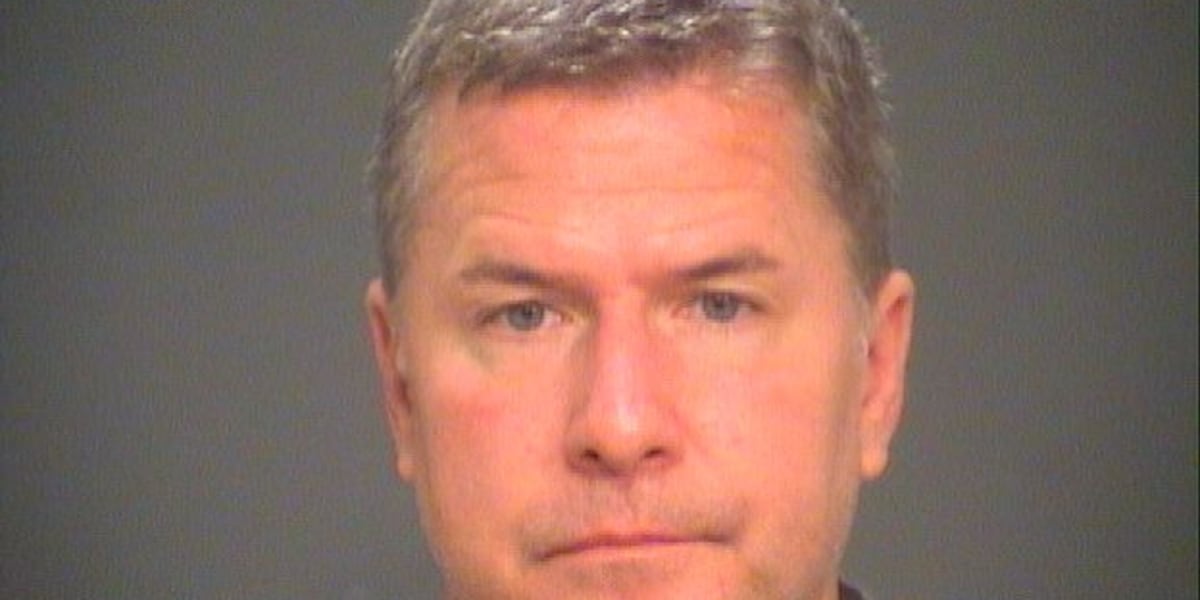
 Cleveland, OH1 week ago
Cleveland, OH1 week agoWho is Gregory Moore? Former divorce attorney charged for murder of Aliza Sherman in downtown Cleveland
-

 News1 week ago
News1 week agoFamily statement: Rodney Hinton Jr. walked out of body camera footage meeting with CPD prior to officer death
-

 Politics1 week ago
Politics1 week agoTrump posts AI image of himself as Pope amid Vatican's search for new pontiff
-
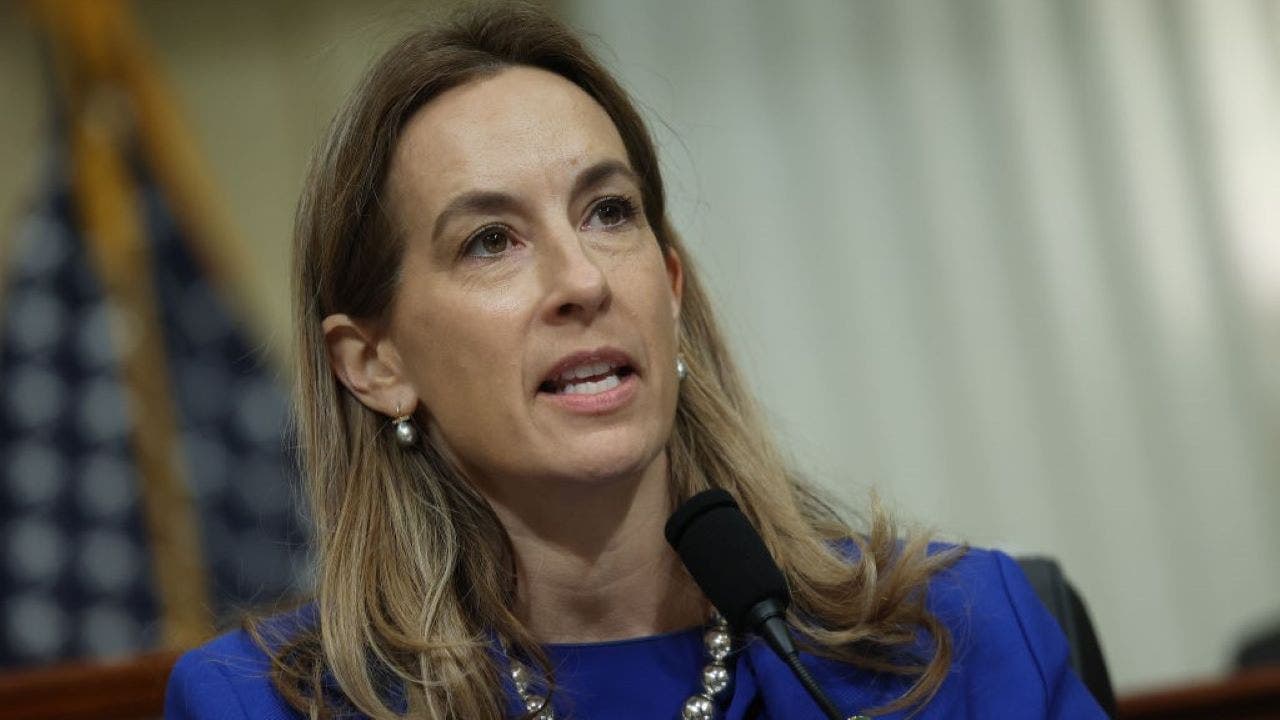
 Politics1 week ago
Politics1 week agoRep. Mikie Sherrill suggests third Trump impeachment as she campaigns to be next New Jersey governor
-

 News1 week ago
News1 week agoAre Politicians Too Old? California Democrats Want to Debate an Age Cap.
-

 World1 week ago
World1 week ago‘Don’t see a major war with India, but have to be ready’: Pakistan ex-NSA
-

 News1 week ago
News1 week agoFather Whose Son Was Shot by Cincinnati Police Hits Deputy With Car, Killing Him
-

 News1 week ago
News1 week agoFederal judge strikes down Trump order targeting the law firm Perkins Coie



